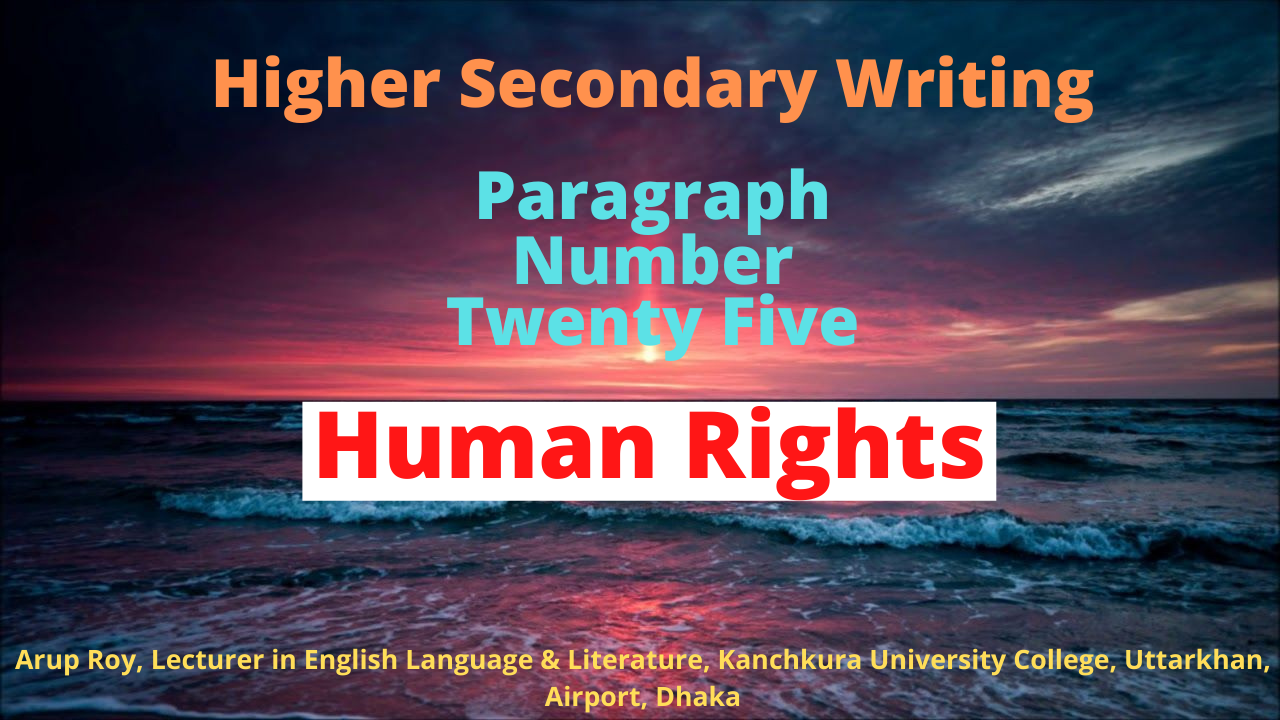Human rights are directly connected to the overall well-being of human beings. Without ensuring such rights we cannot ensure the well-being of human beings. Therefore, it is necessary to establish human rights. The well-being of human beings is not limited to ensuring fundamental rights such as food, medicines, clothes, shelters, and education. Though these fundamental rights are directly connected to our existence, they cannot guarantee a sophisticated human life. A human being is born free; therefore, he does not want to be subject to slavery. He must have the right to live freely, think freely, express freely, move freely, do public assembly, etc. He must have the right to nationality, to a safe place to live, to privacy, to marriage and family, to games and sports, to jobs, to trial, to democracy, to a fair and free world. He should not be subject to any kind of discrimination, slavery, or torture. No one has the right to take away one's human rights. The Universal Declaration of Human Rights formulated in 1948 formulated 30 articles that have ensured all the rights mentioned above. These articles have been included by international law. So, the goodness of a land in which one lives depends on how much the land can ensure the rights declared by the Universal Declaration of Human Life.
Importance of Learning English
The Unemployment Problem in Bangladesh
Empowerment of Women in Bangladesh
International Mother Language Day
International Mother Language Day
Uses and Abuses of Mobile Phone

